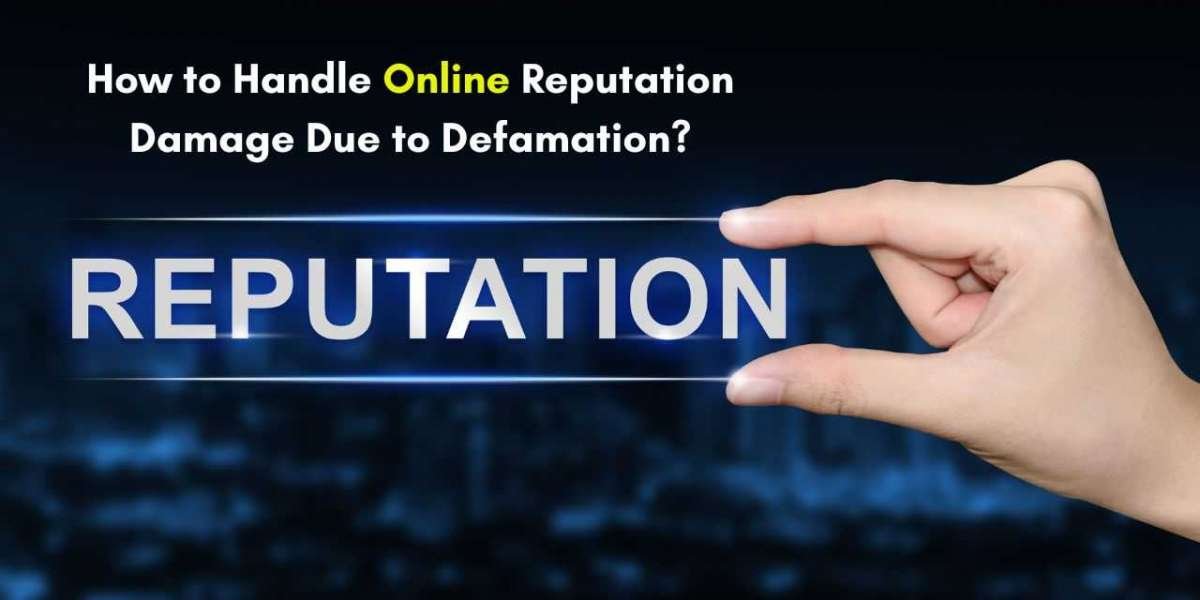In today's digital world, a person's or company's online reputation can be their most valuable asset. However, this reputation is also vulnerable to attacks, particularly in the form of defamation. Defamation, whether libel (written) or slander (spoken), can cause significant harm to one's personal and professional life. This blog post will explore how to handle online reputation damage due to defamation, including legal and practical strategies to protect and restore your good name.
Understanding Online Defamation
Defamation in the online realm can take many forms, from false reviews on business sites to malicious posts on social media platforms. The rapid spread of information on the internet means that defamatory content can quickly reach a wide audience, potentially causing severe damage to one's reputation.
Legal Notice: The First Step in Addressing Defamation
When you discover defamatory content about you or your business online, one of the first steps you should consider is sending a legal notice. A legal notice for defamation serves as a formal warning to the person or entity responsible for the defamatory content. It informs them of the legal consequences they may face if they don't retract their statements or remove the offending content.
The importance of a well-crafted legal notice cannot be overstated. It sets the tone for any potential legal action and can often resolve the issue without the need for court proceedings. A properly drafted legal notice demonstrates that you are serious about protecting your reputation and are willing to take legal action if necessary.
Crafting an Effective Defamation Notice
When preparing a legal notice for defamation, it is essential to follow a proper defamation notice format . While the specific format may vary depending on your jurisdiction, several key elements should be included:
- The sender's and recipient's details
- A clear statement of the defamatory content
- Explanation of why the content is false or misleading
- Description of the harm caused by the defamation
- Demand for removal of the content and/or public retraction
- Deadline for compliance
- Statement of intent to pursue legal action if demands are not met
It's crucial to strike the right balance in your legal notice. It should be firm and clear about the seriousness of the situation, but avoid using excessively aggressive language that could escalate the conflict unnecessarily.
How to Send a Legal Notice to Someone
Once you've prepared your legal notice with the help of legal counsel, the next step is to send it to the responsible party. Here's a general guide on how to send a legal notice to someone:
- Identify the correct recipient: This could be an individual, a company, or a website hosting the defamatory content.
- Choose a delivery method: Registered mail with acknowledgment due is often preferred as it provides proof of delivery.
- Keep records: Maintain copies of the notice and proof of delivery for your records.
- Follow up: If you don't receive a response within the specified timeframe, consult with your lawyer about the next steps.
Remember, the goal of sending a legal notice is often to resolve the issue without going to court. Many times, the recipient will comply with the demands to avoid legal action.
Beyond Legal Action: Practical Steps to Manage Online Reputation
While legal measures are important, they're not the only tools at your disposal when dealing with online reputation damage. Here are some practical steps you can take:
- Monitor your online presence: Regularly search for mentions of your name or business online. Set up Google Alerts to receive notifications when new content mentioning you appears.
- Respond professionally: If you encounter negative or false information, respond calmly and professionally. Avoid getting into public arguments, as this can often make the situation worse.
- Create positive content: Generate and promote positive content about yourself or your business. This can help push negative content down in search results.
- Engage with your audience: Maintain an active and positive presence on social media and other online platforms. This can help build a strong reputation that's more resilient to attacks.
- Consider reputation management services: Professional reputation management companies can help monitor and manage your online presence, often using sophisticated tools and strategies.
Seeking Legal Advisory for Defamation Cases
Navigating the complexities of defamation law can be challenging, especially when dealing with online content that may cross jurisdictional boundaries. This is where seeking professional legal advisory becomes invaluable. An experienced lawyer can provide guidance on the strength of your case, help you craft an effective legal notice, and advise on the best course of action.
For businesses facing reputational threats, corporate legal advisory services can offer specialized expertise in handling defamation cases that affect companies. These services can help protect not only the company's reputation but also its financial interests and stakeholder relationships.
The Role of Online Platforms in Defamation Cases
Many defamation cases involve content posted on social media platforms, review sites, or other online forums. It's important to understand that these platforms often have their procedures for dealing with defamatory content. While they may not always be as responsive as we'd like, it's worth exploring these options:
- Report the content: Most platforms have mechanisms to report false or harmful content.
- Use platform-specific tools: Some platforms offer tools to business owners to respond to reviews or flag inappropriate content.
- Provide evidence: When reporting content, provide as much evidence as possible to support your claim that the content is false or defamatory.
- Be persistent: If your initial report doesn't yield results, don't hesitate to follow up or escalate the issue within the platform's system.
Prevention: Building a Resilient Online Reputation
While it's crucial to know how to respond to defamation, prevention is always better than cure. Building a strong, positive online presence can make you more resilient to reputation attacks. Here are some strategies:
- Consistently produce high-quality content related to your field or business.
- Engage authentically with your audience or customers online.
- Encourage satisfied customers or clients to leave positive reviews.
- Be transparent about your business practices and address any legitimate criticism promptly and professionally.
- Invest in search engine optimization (SEO) to ensure that accurate, positive information about you or your business ranks highly in search results.
Conclusion: Protecting Your Digital Reputation
In conclusion, handling online reputation damage due to defamation requires a multi-faceted approach. Legal measures, such as sending a well-crafted legal notice for defamation, can be powerful tools in addressing false and harmful content. However, they should be complemented by practical strategies to build and maintain a positive online presence.
Remember that every situation is unique, and what works in one case may not be appropriate in another. That's why seeking professional legal advisory, especially corporate legal advisory services for businesses, can be crucial in navigating these complex issues.
By understanding your rights, knowing how to send a legal notice to someone , and implementing proactive reputation management strategies, you can protect your online reputation and respond effectively to defamation attempts. In the digital age, your online reputation is a valuable asset – treat it as such, and don't hesitate to defend it when necessary.



